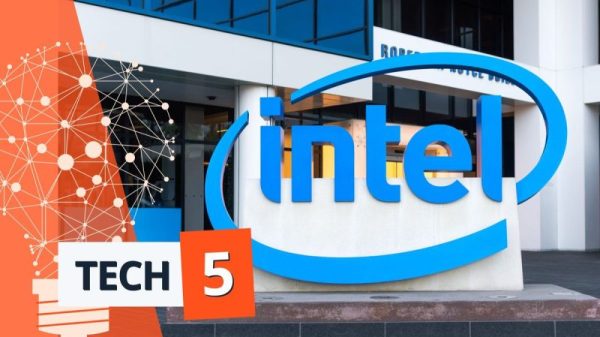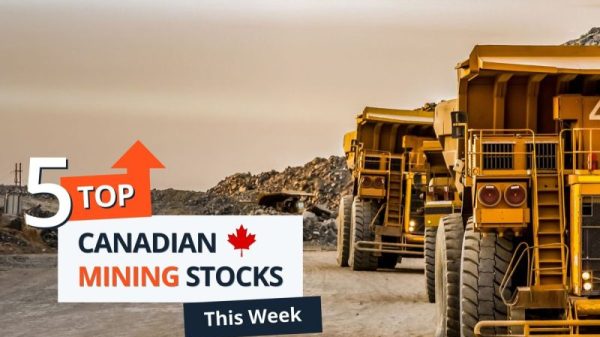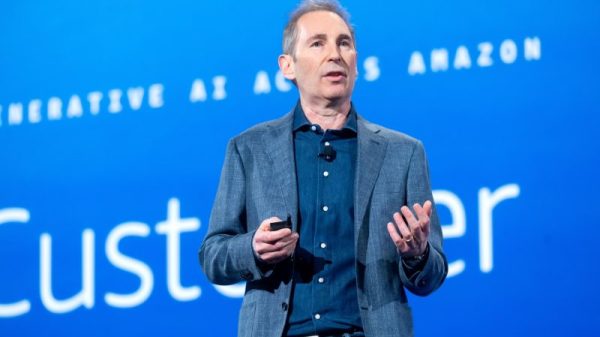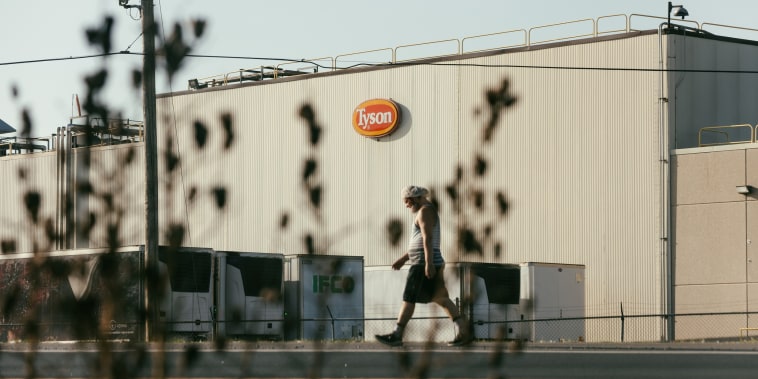When Tyson Foods announced in August that it was closing its 1,500-worker chicken plant in Noel, Missouri, residents knew the rural town would be hit hard. Some started leaving soon after the company — which employed more than a quarter of the surrounding county — broke the news.
The site shut down late last month, one of three October closures in a broader shake-up that the meat giant said reflected its “commitment to bold action and operational excellence.”
But Jimi Lasiter stayed put.
After 11 years at the plant, she was holding out for her $1,000 severance check and assessing the exodus’ impact on her community. By the end of September, she said around half a dozen colleagues had already left their tight-knit team of about 20; those who remained were packing office supplies and furniture rather than cuts of meat. She didn’t want to create more work for them by leaving early, and she wasn’t in a rush.
“If I’m gonna go someplace else, especially if I’m gonna get anything that pays more than $10 or $12 an hour, I’m gonna have to drive 45 minutes,” Lasiter said at the time.
By Friday, though, she said she still hadn’t received her severance, complicating her plans to file for unemployment benefits and take some time to weigh her options. Tyson didn’t immediately comment on its compensation of former Noel employees.
Like Lasiter, many workers are weighing their moves in a slowing national labor market. While hiring growth remains strong, people in rural areas without ample employment opportunities nearby are facing challenges that policymakers from the municipal to the federal levels say they’re pushing to address.
Data released Friday showed the economy added 150,000 jobs in October, down from 297,000 in September. Unemployment, while still at historic lows, ticked up to 3.9%. Last week President Joe Biden embarked on a tour of rural communities to highlight more than $5 billion in agricultural and small-town infrastructure investments aimed at spurring growth in places like Noel.
Tyson and Noel officials have hosted job fairs for laid-off workers, and the company said more than 300 employees are relocating from closing facilities to its other sites.
I’ve talked to people that didn’t relocate, and they’re like, ‘Let me know if something comes up there.’
Tyson worker Corina Chinchilla, who took a job transfer from Noel to Monett, Mo.
Even as it’s on pace to shut six plants this year and the next, triggering more than 4,600 job cuts, Tyson is developing two new ones in Danville, Virginia, and Bowling Green, Kentucky, set to employ 850 people altogether.
“My first thought was: How can I stay with the company?” said Corina Chinchilla, 32, who worked for 13 years at the Noel plant, ultimately becoming a production supervisor for packaging chicken breasts and tenders.
She “applied right away” for a lateral move to Tyson’s plant in Monett, Missouri, about 60 miles northeast of Noel but a similar 35-minute drive from her home in Neosho. All three towns, situated in the western Ozark Mountains, belong to a region where average annual income is $39,600 and 20% of jobs are in manufacturing.
“I’ve talked to people that didn’t relocate, and they’re like, ‘Let me know if something comes up there,’” Chinchilla said.
Tyson confirmed that David Handy, a pallet jack operator at the Noel plant who spoke with NBC News in August about the closure, was among the 16% of the facility’s workforce who took internal transfers. Handy didn’t respond to recent requests for comment.
Tyson closed its facility in North Little Rock, Ark., last month.Danny Johnston / AP file
Other Tyson workers, like Ryan Coulter, 27, declined to move.
After working at the North Little Rock, Arkansas, plant that closed in early October, in roles that included assessing meat inventories, Coulter ruled out commuting to the nearest active Tyson complex.
While the average price of a gallon of gas in Arkansas, at $3.03, is about 22 cents cheaper than it was a year ago, he’d be driving much farther.
“I’d end up spending half my check getting there,” he said. “That’s stressful. I ain’t gonna set myself up for failure.”
Instead, Coulter said, he took a job at a nearby Value Foods grocery store. He declined to say how the pay compares.
While big employers like Amazon and Costco have expanded in the Little Rock metro area, attracting young professionals and a range of new jobs, Noel’s economic future looks more uncertain.
Mayor Terry Lance said he was working with the Harry S. Truman Coordinating Council, an economic development group in southwest Missouri, to find ways to move Noel beyond its longtime identity as a largely single-employer town.
In the weeks after the plant closure was announced, he said he’d talked with a pontoon boat manufacturer about taking it over, but that that company would employ no more than 350 workers at full capacity. Since then, Lance said a Texas firm that converts wastewater sludge to feedstock had signed a letter of intent to buy the complex, but he was “not convinced they can do that without a lot of odors” and wanted to avoid a “nightmare.”
I really do think we’ll come back on the other side of it better.
Noel, Mo., Mayor Terry Lance
Lance said other ideas included opening an “industrial training facility” at the plant and pivoting Noel toward tourism, drawing on local attractions like the Elk River — Noel calls itself the “canoeing capital of the Ozarks” — and the Bluff Dwellers Cave just outside town.
He said he expects “two years of really, really lean times” but was confident the community would persevere. “I want to urge all of our business owners to hold on, because I really do think we’ll come back on the other side of it better,” he said.
Some of the town’s character that Lance sees as an asset may already be waning.
“Everyone has their own unique art, craft, food and music, and that’s what tourists like,” he said of the robust immigrant communities drawn to Noel during its decades as a poultry hub. But as the Missouri Independent reported last week, many residents from Somalia and elsewhere who are in the United States under refugee programs have been quick to head out in search of new jobs, concerned about their employment prospects.
State and federal officials, wary of economic fallout in the region, have pressed Tyson to sell some of the sites it’s vacating.
Sen. Josh Hawley, R-Mo., and Missouri Attorney General Andrew Bailey have both warned publicly that failing to seek new operators for the Noel plant and the one in Dexter that closed last month could violate antitrust laws. In September, Hawley said Tyson CEO Donnie King had reassured him that the company was willing to sell “to any interested party — including a competitor.”
Tyson, which declined to comment on the future of its shuttered plants, has said it was “supporting impacted team members and growers” and was “open to receiving all offers.”





























